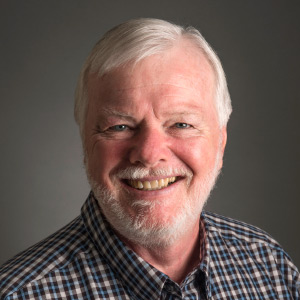A decade ago, in his Second Inaugural Address, Barack Obama made the claim that “preserving our freedoms ultimately requires collective action.” And his many proposals, assertions and “victories” as President, such as Obamacare and Dodd-Frank, demonstrated that, in his view, liberty required massive “progressive” government.
President Obama’s understudy, now in the White House, has, along with his enablers, doubled or tripled-down on that view. It is perhaps best illustrated by his desire to replace Americans’ power to make their own decisions about the comfort of their own homes. As Beege Welborn, put it, “Is there any comfort in your solidly middle class life that they will not try to deprive you of, or, if unsuccessful, at least regulate into non functionality and obsolescence-by-design?” He then cites “Gas stoves, the very power in your home, your car, air-conditioner, washing machine and dishwasher,” followed up with new proposals to regulate ceiling fans, which he creatively described as “Those blameworthy blades of bounty and selfish indulgence.”
The shared approach of both Obama and Biden, however, is sharply at odds with the vision behind America’s Founding. Since that Founding was strongly influenced by English philosopher John Locke, whose birthday is August 29, it is worth revisiting his vision of liberty to highlight the massive political “continental drift” involved.
Locke’s influence on our Founding may best be seen in in the fact that some have argued that the Declaration of Independence would not have been written without him. Further, it has been said that in writing the Declaration of Independence, “Jefferson...succeeded admirably in condensing Locke’s fundamental argument into a few hundred words.” The question of whether Thomas Jefferson essentially plagiarized its core second paragraph from Locke’s 1689 Second Treatise on Government has also arisen.
Locke’s views are in sharp contrast with our recent political practice of growing government from one of very limited powers toward one of omnipresence, if not omnipotence. As Locke put it, and America’s Founders echoed, “Political power...can have no other end...but to preserve the members of that society in their lives, liberties, and possessions.”
If we were to reword President Obama’s line about the necessary ambit of collective action into something consistent with the Founders’ view, we might say that “preserving our freedoms ultimately requires one type of collective action, but rules out many others,” reflecting Locke’s dictum that “the end of law...is to preserve and enlarge freedom...from restraint and violence by others.”
Locke advocated a state that existed to advance the welfare of all of its citizens (the most natural interpretation of the General Welfare clause in the Preamble to the Constitution). Because “all men are naturally in...a state of perfect freedom to order their actions, and dispose of their possessions and persons, as they see fit...without...depending upon the will of any other man,” his goal was a society all would willingly join. Since joining would be voluntary, no one could be harmed by the state to benefit others.
What could a government restricted to solely advancing citizens’ general welfare do? Not much. It would certainly not be omnipresent. It could do one essential thing, derived from individuals’ “natural right” to themselves and their productive efforts: defend property, as David Hume also recognized long ago.
Self-ownership is limited in effectiveness because an individual trying to protect his rights against violation could be relatively easily overwhelmed by superior force. Therefore, “the preservation of property being the end of government, and that for which men enter society,” joining together to mutually defend everyone’s property would make all more secure, expanding the range of consequent voluntary arrangements which immensely benefit everyone.
Locke’s view, reflected in our Founding documents, is that preserving our freedoms requires one type of collective action: the preservation of our rights. No more. Actions beyond that benefit some at the expense of others. In Locke’s words, “The supreme power cannot take from any man any part of his property without his own consent,” and whenever that limit is violated, “by this breach of trust they forfeit the power the people had put into their hands for quite contrary ends.”
Locke’s view reflects the fact that a government that has nothing of its own to give, but can only give what it takes from others, means it cannot “give” to some without involuntarily violating the general welfare of others. Both Presidents Obama and Biden have instead viewed such violations as a routine part of governing, and made it far more routine in the process. Such a transfer society inherently violates government’s essential task of protecting the property of those it takes from, invading the “fundamental, sacred, and unalterable law of self-preservation, for which they entered society.”
When the President of the United States views his core tasks as taking from some to give to others through mandates, regulations, “taxing the rich,” expanding entitlements, and the like, it is strikingly at odds with America’s Lockean foundation. That version of “preserving our freedoms” violates the one type of collective action that is justifiable—protecting each of us from the depredations and invasions of others—and replaces it with a vast array of collective actions that need to be prevented rather than implemented if we are to enjoy liberty.
What would Locke say about this? “Rulers should be...opposed, when they grow exorbitant in the use of their power, and employ it for the destruction, and not for the preservation of the properties of the people.” And America’s Founders were of the same mind. As Richard Henry Lee wrote, “A free and enlightened people...will not resign all their rights to those who govern... they will fix limits to their legislators and rulers...[who] will know they cannot be passed.” George Washington urged us to “Express your utmost horror and detestation of the man who wishes, under any specious pretenses, to overturn the liberties of our country.” John Adams wrote, “Property must be secured, or liberty cannot exist.” And that list goes on at length. Unfortunately, though, the collective actions necessary to secure our rights against others, especially against the government, which has the greatest powers to violate them, have been largely overrun by those who are now largely in control, rather than controlled.








